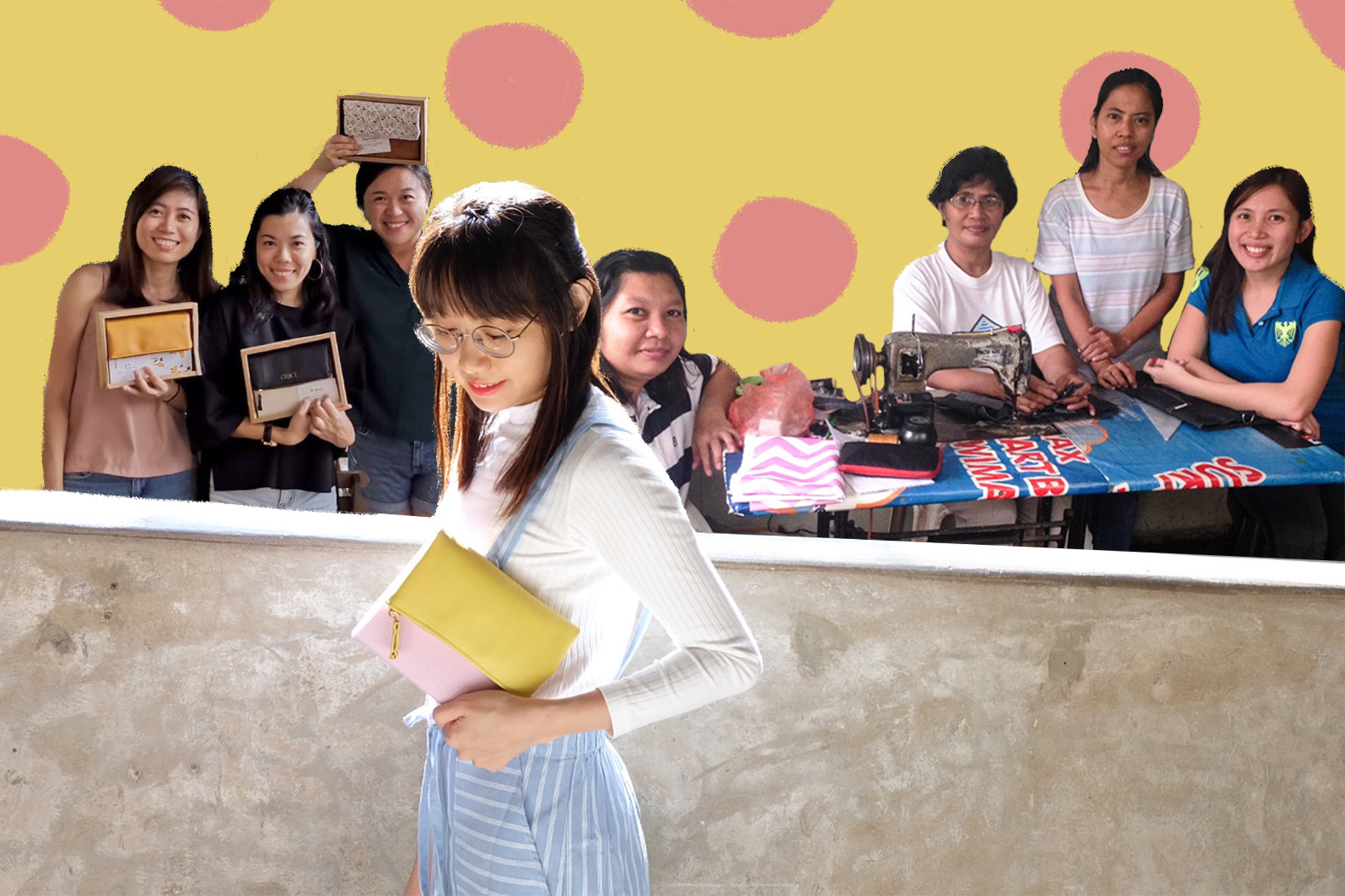My dream of running a social enterprise began with a seed that was planted in 2008.
When I was in university , I went on an overseas volunteer trip with MILK (Mainly I Love Kids) to impoverished Tala in Caloocan City, Philippines. What left the deepest impression was a group of women who were relatives of lepers. They were making very beautiful and unique reversible dolls, but there was no demand for them because of a lack of market access.
During the trip, I also met local college students. Most of them shared how they were not able to fulfil their aspirations because they did not have enough money to pursue their relevant course of study. Something began tugging at my heart.
But after I graduated from university, the realities of paying off school loans and building up finances caused that desire of running a social enterprise to take a back seat. I ventured into FMCG retail market research, business development and corporate strategy in the first few years of my career.
I was learning and enjoying some days of my work, but there were still times when I was frustrated because I felt that I wasn’t doing what I was called to do. In those years, I learnt about working as unto the Lord (Colossians 3:23), faithfully sowing, sharpening and stewarding skills, while trusting in His timing.
In 2014, I took a mission trip to Iwate, Japan, which was hit by the 2011 tsunami. At the end of the trip, God impressed upon my heart this verse.
“Blessed are the poor in spirit, for theirs is the kingdom in heaven.” (Matthew 5:3)
I asked myself how this could apply to my life back in Singapore. In my career, I had been blessed with great mentors at work. I also felt like I was “capable enough”.
Having said that, this was different from how I felt during mission trips. Every day was unpredictable – I did not know what I had to do, but I would simply step out in faith and live by the leading and provision of Jesus. I told God that I hungered to have the same spirit in my career.
As it turned out, two weeks after I got back from my trip, I was retrenched from the company I enjoyed working for. It was also around that time that the idea for my first social enterprise was birthed.
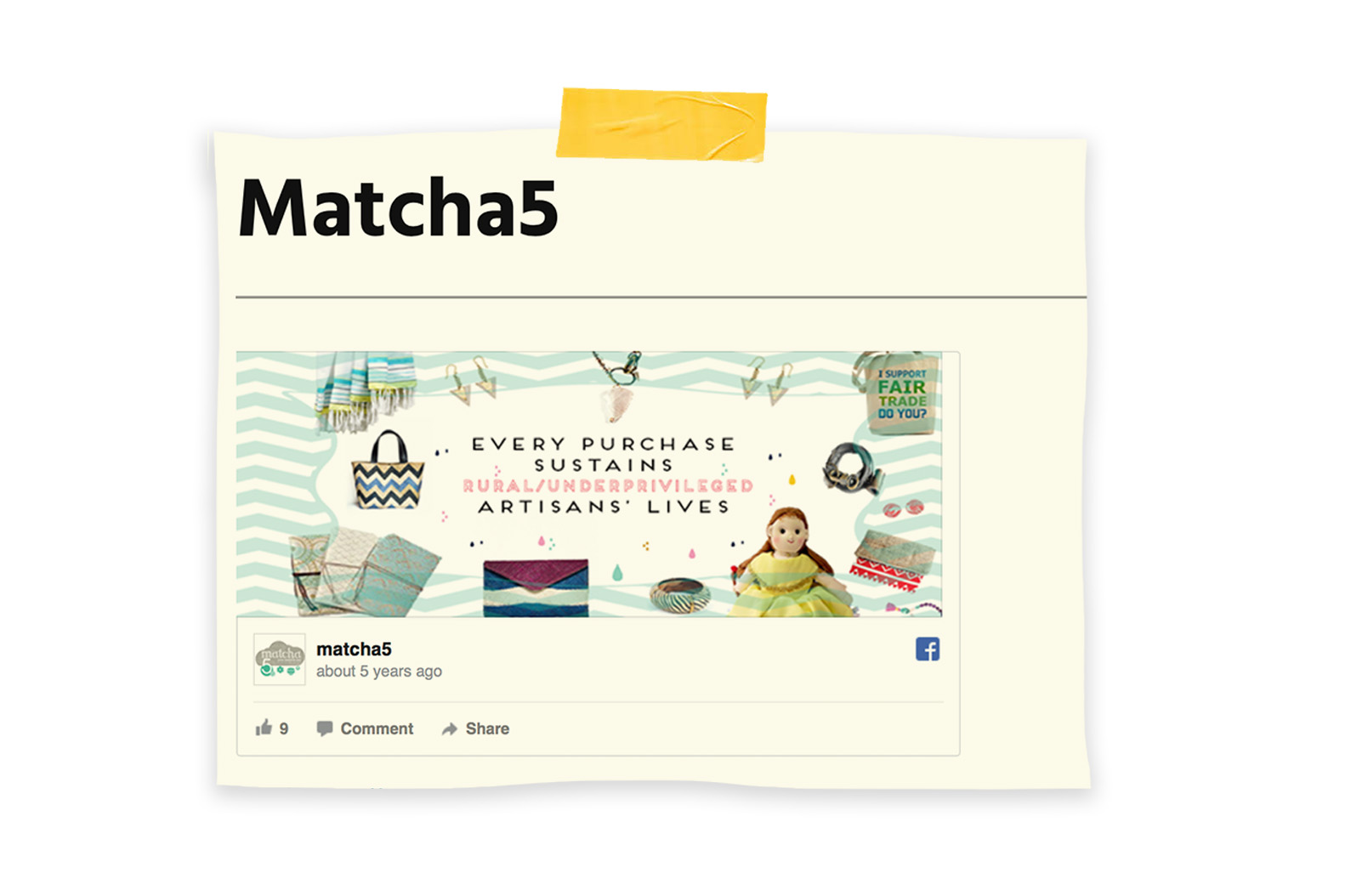 Encouraged by people around me, I decided to take that step of faith and launch matcha5, an online marketplace for rural and disadvantaged artisans, bringing back the reversible dolls that began this dream.
Encouraged by people around me, I decided to take that step of faith and launch matcha5, an online marketplace for rural and disadvantaged artisans, bringing back the reversible dolls that began this dream.
When I first started matcha5 at 27 years old, I didn’t think I was the most equipped, smartest or well-connected at that point of time. I juggled many hats as a one-man operation and couldn’t seem to find people with the same vision to run the business together.
The one-and-a-half years of doing this was very tough. I eventually shut down matcha5 and went back to corporate work because it was loss-making. However, it was through matcha5 that I became friends with Mitzi, who runs Philippine-based social enterprise, mori.
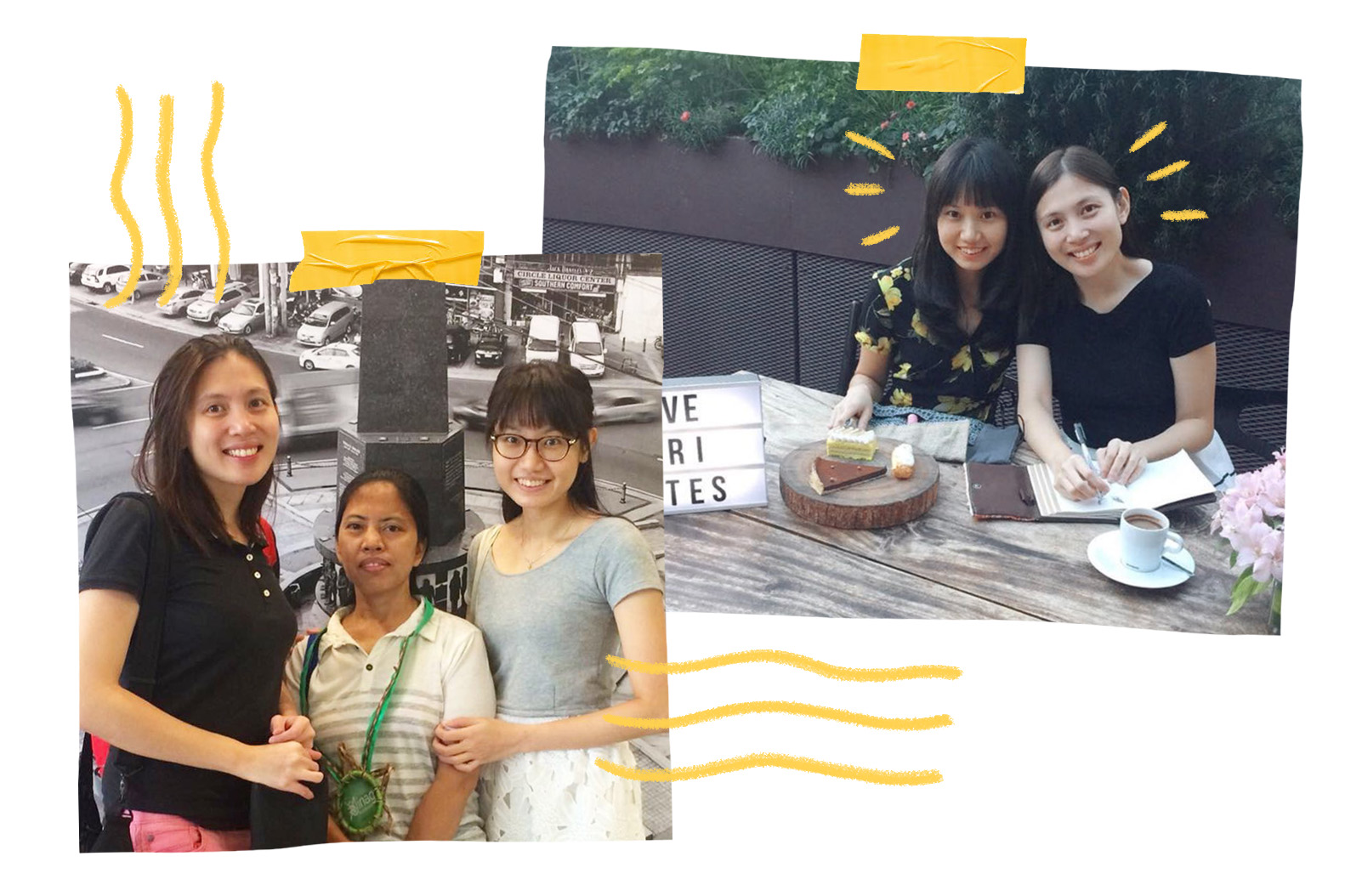
We started chatting and shared our common goal to reduce poverty through fair employment as well as product value creation and innovation. Having created many journals of her own to document her own journey with God, Mitzi subsequently birthed mori’s key product, a pursebook that blends the function of a purse and notebook.
One of mori’s main missions is to provide mothers with work-from-home opportunities, so that they can take care of their children. Due to the low prevalence of contraception and high fertility rate among the poorest segments of the Filipino population, mothers must cope with managing big households.
We now work with about 15 mothers, compared to the four that mori started with. The mums that mori works with have minimal skills and used to sew only rags that didn’t even require straight stitching. But with training, their work has improved tremendously.
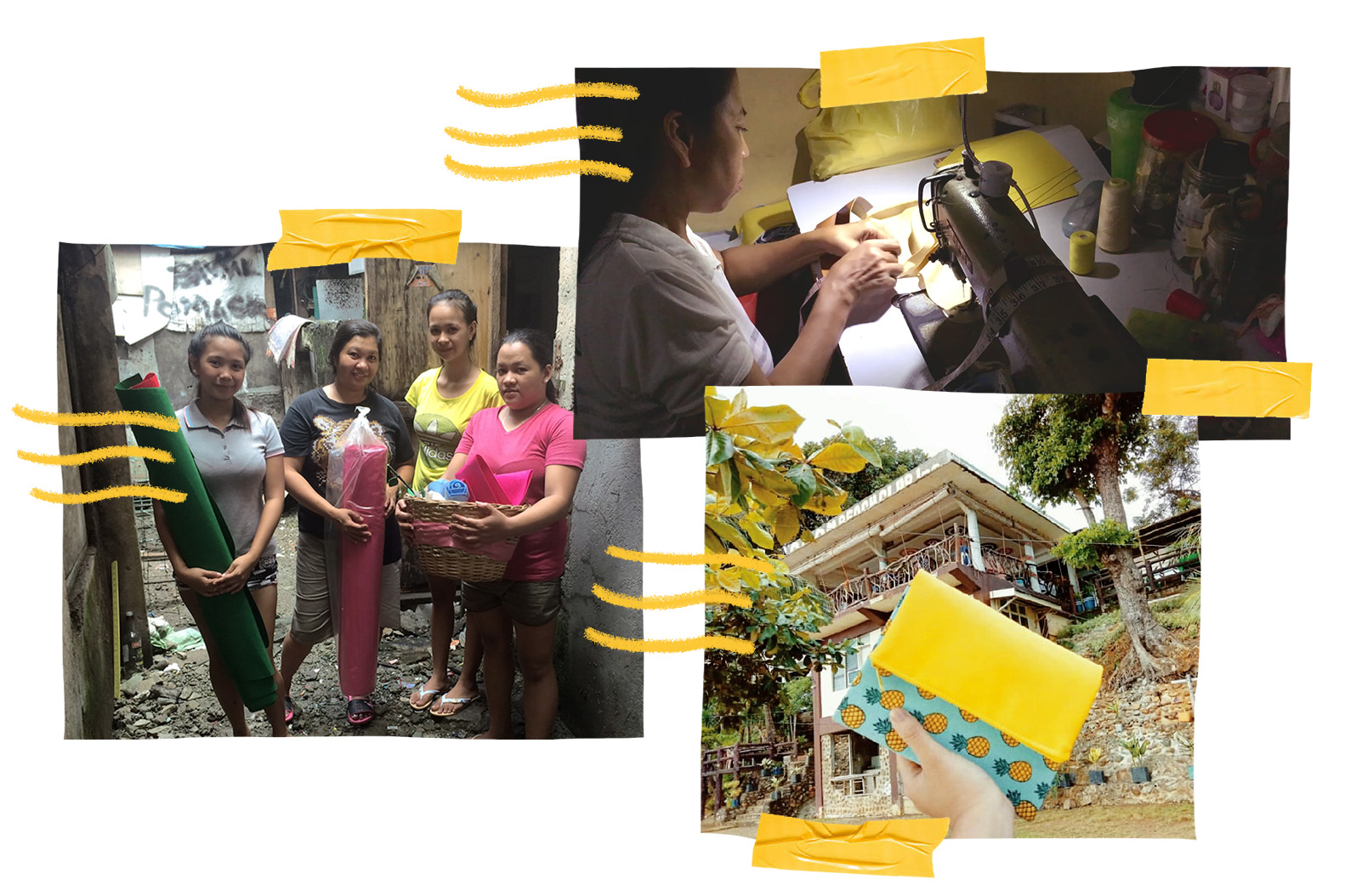
We pay them a rate that is higher than what other manufacturing companies offer. This takes into account the time it takes to hand-make the product as well as the minimum wage.
These mums used to sew rags at 100 pesos (S$3) per day, but they are now earning 400-500 pesos (S$12) a day. They also used to borrow money through loan programmes with high interest rates and shady practices, which plunged them into debt. But they are now able to cover their food and living expenses, including their children’s education.
Mitzi once shared with me how it can be easy to feel anxious about not being able to provide jobs for the mothers. But she has learnt to release the burden to God, trusting that His heart for these mothers is bigger than hers.
It has been a humbling journey to receive support from customers and partners whom have all helped mori to grow. We see ourselves as a platform that connects women from all walks of life to create value together. For instance, we have collaborated with artists for custom-printed illustrations on our pursebooks and organisers as well as clay pins that can be used on our products.
Our pursebooks come with refill notebooks that have uplifting quotes to inspire self-reflection. But beyond that, we wanted to encourage people to make journaling a lifestyle amid their busyness, so we created a 2020 planner that comes with quotes and reflection questions across themes such as love, friendship and courage.
We are also sharing tips on how to make journaling more fun and practical through an Instagram hashtag, and most recently started workshops to give practical ideas on how one can deepen their walk with God through journaling.
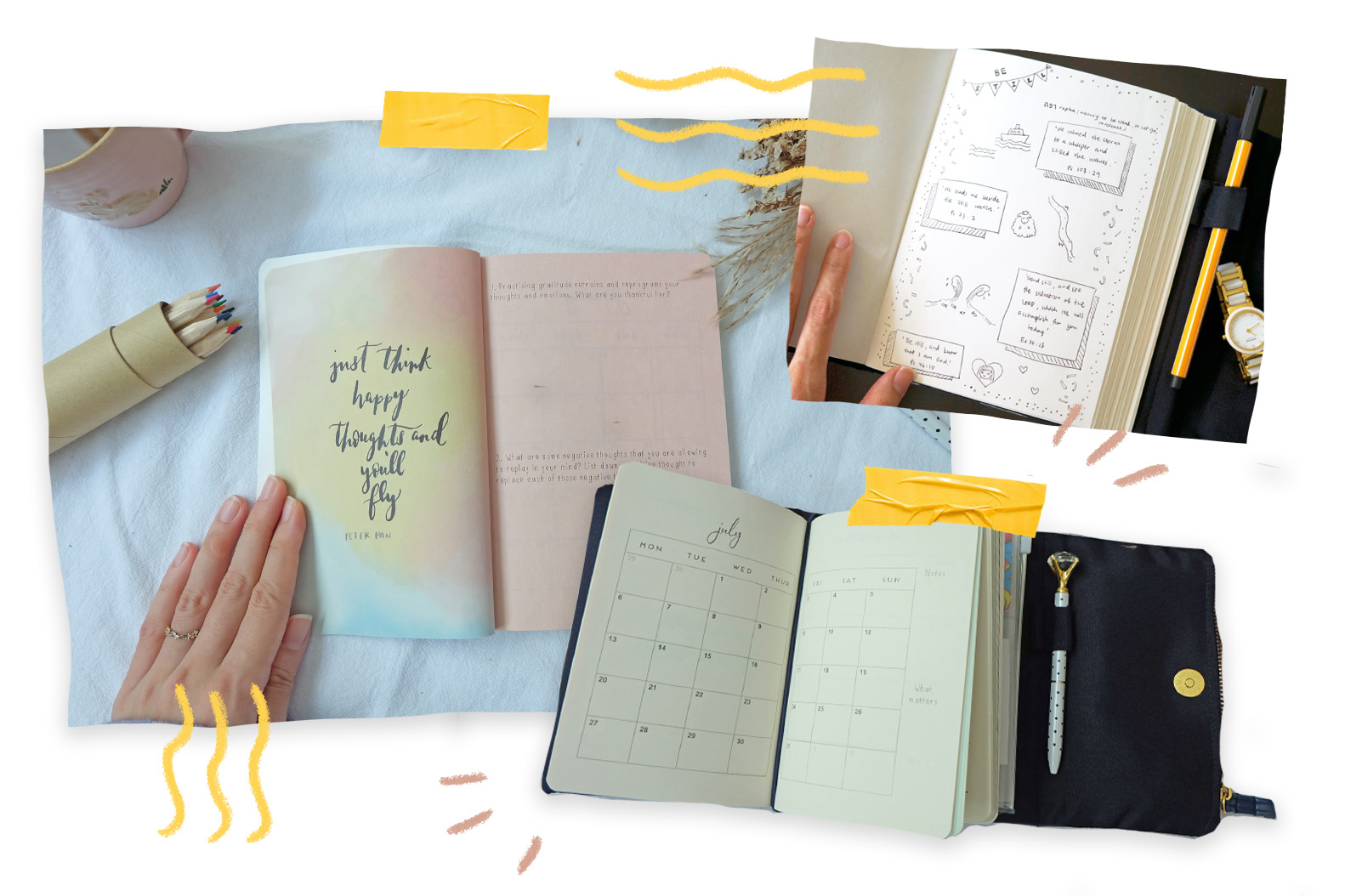
Since 2017, I have been helping to grow mori on the side while holding down a full-time job. Compared to matcha5, mori is profitable, but it’s not yet sustainable as a full-time venture.
In September, however, I was told that my contract could not be extended. I was discouraged for awhile, asking God what does it mean to have confident expectation of good because in that moment, it seemed that what I had planned for did not work out.
But God reminded me to be confidently expectant of His goodness (nature), regardless of the outcome or circumstance. So, here I am again at this crossroad with the future of mori unknown, but putting that quiet trust in Jesus.
Mori is a variant for Moriel, a Hebrew name that means “God teaches”. Despite the challenges ahead, Mitzi and I deeply believe that God is our teacher – He will lead and guide us with wisdom and creativity to provide sustainable work for the mothers.
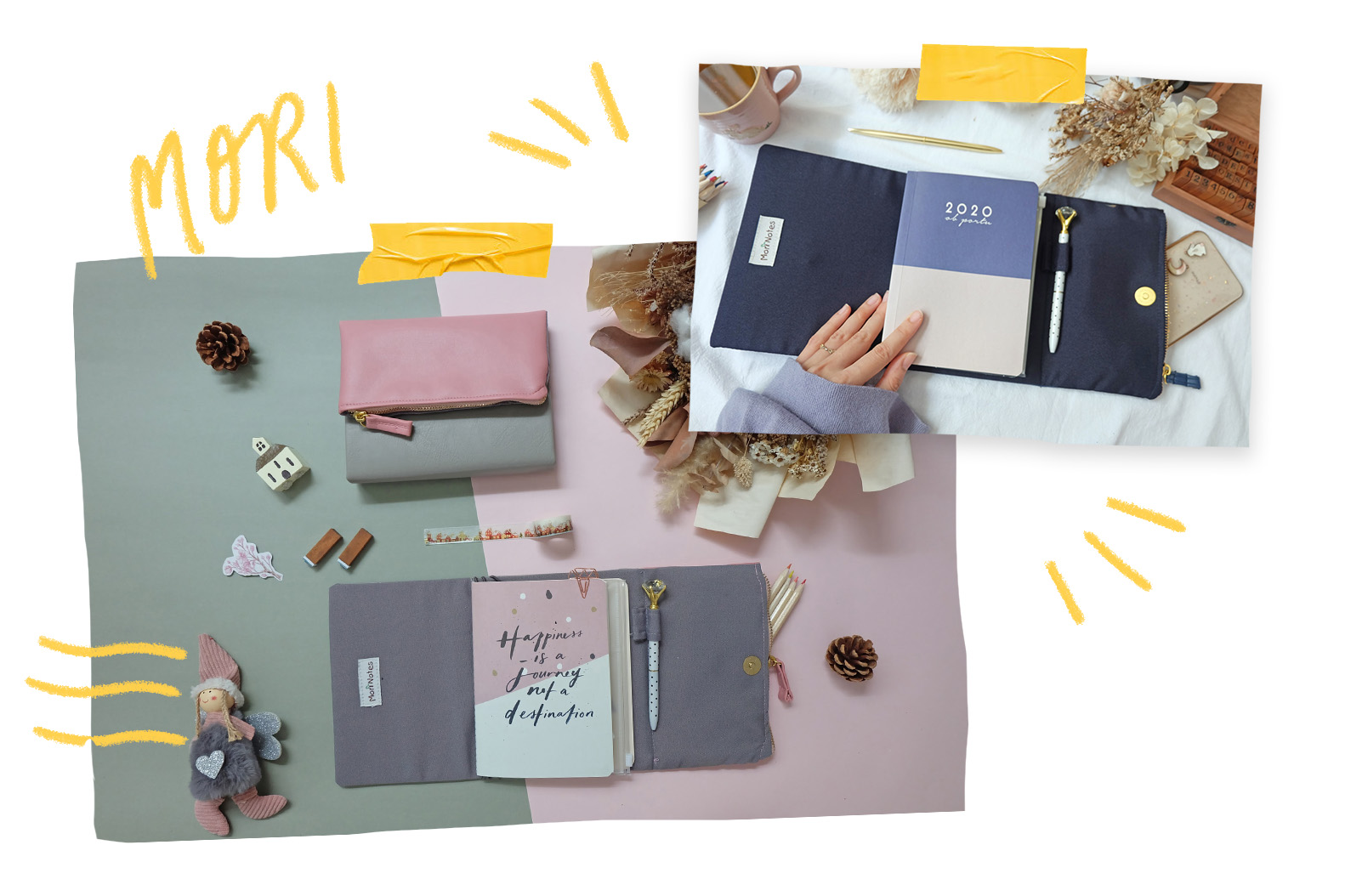
Rachel and Mitzi have 1 pursebook and 1 planner to bless! For more details, follow our Instagram and Facebook pages. From now until end-December, all Thir.st readers can use this discount code THIRST10 for 10% off your purchases.


